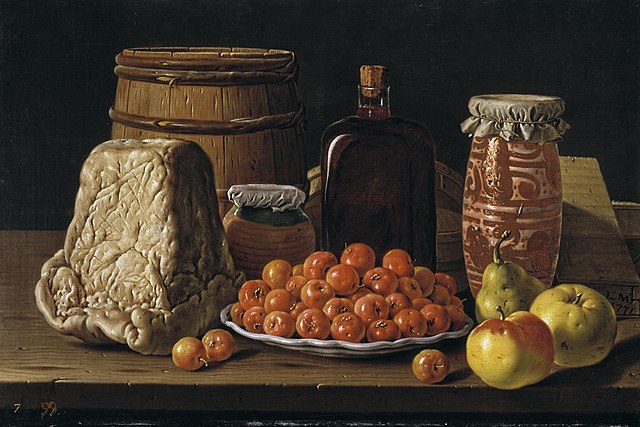Each 18 June, the United Nations (UN) commemorates Sustainable Gastronomy Day.
The noun gastronomy refers to studying the relationship between food and culture, as well as the art of preparing and eating good food. The term gastronomy derives from Ancient Greek words meaning a system of rules or laws about cooking or matters having to do with the stomach.
As the UN website states,
Sustainable Gastronomy Day emphasizes the need to focus the world’s attention on the role that sustainable gastronomy can play. It also reaffirms that all cultures and civilizations are contributors and crucial enablers of sustainable development.
The UN General Assembly adopted on 21 December 2016 its resolution A/RES/71/246 and designated 18 June as an international observance, Sustainable Gastronomy Day.
The decision acknowledges gastronomy as a cultural expression related to the natural and cultural diversity of the world.
Sustainable gastronomy can play a role due to its interlinkages with the three dimensions of sustainable development, in achieving the Sustainable Development Goals by promoting:
- agricultural development;
- food security;
- nutrition;
- sustainable food production; and
- conservation of biodiversity.
Origin Labelling of Food
Food products linked to their place of origin are economically and socially beneficial to rural areas and promote sustainable development, boasting an annual trade value of over $50 billion worldwide. Such products have specific characteristics, qualities or reputations stemming from their geographical origin.
The study Strengthening sustainable food systems through geographical indications by the FAO and the European Bank for Reconstruction and Development (EBRD) analyses the economic impact of Geographical Indication registration in nine case studies:
Coffee (Colombia)
Darjeeling tea (India)
Futog cabbage (Serbia)
Kona coffee (United States)
Manchego cheese (Spain)
Penja pepper (Cameroon)
Taliouine saffron (Morocco)
Tête de Moine cheese (Switzerland)
Vale dos Vinhedos wine (Brazil)
The registration of products linked to their place of origin has implications running far deeper than economic gains alone. Local producers and processors at the centre of the registration process help make food systems more inclusive and more efficient. Together, producers develop the product specifications, and promote and protect the origin label. The creation of such labels also stimulates public-private sector dialogue as public authorities are often closely associated with the registration and certification process. Source: FAO
The Thammasat University Library owns many books about sustainable agriculture and food products.

Thailand and Sustainable Gastronomy
There have been a number of academic research studies about Thailand and sustainable gastronomy. They include an article published in 2013 in the Journal of Sustainable Development Studies, Providing Sustainable Food in Urban Thailand
The coauthors include Assistant Professor Kanang Kantamaturapoj, Ph.D. of the Environmental Policy Group, Wageningen University, the Netherlands; the Center of Excellence for Environmental and Hazardous Waste Management, Thailand; and the Faculty of Social Sciences and Humanities, Mahidol University, Thailand.
The article’s abstract reads:
Increasing demand for sustainable foods can be a driver for environmental improvements along the food-supply chain as a whole. Research in Western Europe has confirmed the importance of distribution channels in supplying sustainable food and particularly in how they are able to combine consumer concerns with the specific presentation of sustainability in the shop. In the urban areas of Thailand only some distribution channels for sustainable food are available, such as supermarkets and specialized shops (including specialized restaurants). Supermarkets mostly offer sustainable products, but the range of sustainable products depends on the location of supermarket. Specialized shops focused on organic products, healthy food, or special dietary needs.
This paper reviews sustainable food providers i.e. supermarkets and specialized shops in Bangkok and combines literature review and empirical fieldwork. The focus was on the shop as the location where providers encounter consumers. Sustainability was observed at three levels; the general level, the shop level, and the product level. In particular communication, information, and other trust-building mechanisms at shop level were explored.
The paper concludes by confirming the central role of specialized shops and supermarkets in transition processes towards more sustainable food provision. Their engagement creates a pressure on other actors in the food supply chain such as producers, government agencies, and consumers to also shift their practices. Different strategies can be identified as ways to increase sustainability in food provision.
Conclusions of the research:
Overall, the specialized shops are better in providing direct communication between staff and the consumers. Official standards are not such an important strategy for specialized shops to increase consumers‟ trust in the safety of food, since they set up informal activities to build trust between the providers and the consumers. The consumers buy sustainable foods in the specialized shops not only because they trust the food, but also because they are impressed by the services and the friendliness of the shop personnel. The customers of specialized shops are mostly regular consumers, who buy green foods no matter how expensive they are or how long the distance to the shop. By contrast, supermarkets communicate indirectly with their consumers. Information about sustainable foods is provided by posters and official standards. Supermarkets offer sustainable food as one of several alternatives. Therefore, promoting sustainable food products takes a similar role as other alternative food products, such as imported food, functional food, and special food for patients. The target groups of supermarkets are consumers who are looking for convenience when shopping, in terms of variety of food, price and distance. For these reasons, it can be concluded that specialized shops are more focused on providing sustainable food to habitual or committed green consumers. However, there are not enough of these consumers to drive on overall change to sustainable food provision. The specialized shops remain a niche market in Bangkok due to the lack of sustainable food supply, management, and workforce. However, these shops are very active in offering sustainable food to consumers and are keen to encourage consumers in Bangkok to consume more sustainable food.

Another effort to achieve sustainable gastronomy in the Kingdom is through the BioThai Foundation.
As its website explains,
BioThai Foundation was founded through a collaboration between social activists, farmers, academics, government officials and the people of rural communities who shared a common understanding on important issues, problems and proposals related to conservation, development and use of biological resources, local wisdom, community rights, food security and food sovereignty, agriculture, sustainable development and fair trade…
Our objectives
- to study and research critical issues related to biological resources, agriculture, food, farmers’ and community rights;
- to promote and disseminate knowledge related to biological resources, agriculture, food, farmers and community rights to the Thai public; and
- to make recommendations and develop public policies related to the management of natural resources, economic development, and culture, towards sustainable social development.
Main activities
Supporting the role and strength of farmers, local communities, and civil society networks on issues of conservation, rehabilitation, development and sustainable use of biological resources. Currently BioThai is working together with various other organisations to provide support to over 400 communities in every region of Thailand on ecological conservation and rehabilitation, the recovery, development and use of rice varieties, local vegetables, and tropical fruits, to improve community self-reliance and food security…
Cooperating with civil society organisations in various countries to strengthen people’s collaboration and build understanding on international policies related to biodiversity, sustainable agriculture, fair trade, and climate change.
Last year, Anuga 2019, the world’s largest food and beverage fair held in Cologne, Germany featured Thai sustainable food innovations from Charoen Pokphand Foods PCL (CP Foods).
As its website declares,
CPF operates integrated agro-industrial and food business with the objective to provide products of high quality in an environmentally and socially responsible manner.

(All images courtesy of Wikimedia Commons)

